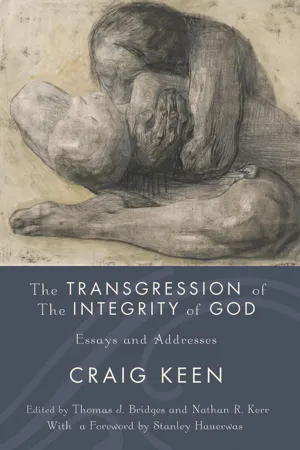Evil and Evolution
A Theodicy
by
Richard W. Kropf
Wipf and Stock Publishers
199 West Eighth Avenue, Suite 3
Eugene, Oregon 97401
Evil and Evolution: A Theodicy
By Kropf, Richard W. 1932-
Copyright© March 2000 by Kropf, Richard W.
ISBN: 1-59244-798-8
Publication date: 2004, 2012
Previously published by Fairleigh Dickinson University/
Associated University Presses, 1984
Library of Congress Cataloging in Publication Data
Kropf, Richard W., 1932-
Evil and Evolution: A Theodicy
Bibliography: p.
Includes index.
1. Good and evil. 2. Theodicy 1. Title.
BJ1401.K74 1983 231’.8 81-72041
ISBN
Page 1
Preface to the Second Edition
In her 2003 book, Evil in Modern Thought: An Alternative History of Philosophy, Susan Neiman has quoted Hanna Arendt’s rather sarcastic description of theodicy as being “…one of those strange justifications of God or of Being, which ever since the 17th Century, philosophers felt were needed to reconcile man’s mind to the world…” Neiman herself goes on to state that “Theodicy in the narrow sense allows the believer to maintain faith in God in the face of the world’s evils” and that “Theodicy in the broad sense, is any way of giving meaning to evil that helps us face despair.” The aim of my book, despite its brevity, has been not only to do both but considerably more. It is not enough to be reconciled to the world or to simply face despair. Nor is it enough to maintain faith in God: too often this belief has been an excuse for doing little about evil. Instead of reconciliation with the world or mere maintenance of belief, we must strengthen and deepen our theological motivations for conquering evil in all its forms.
While the term theodicy may be relatively new, (see Appendix for more on that) the attempt “to justify God’s ways to man” has been part of an effort that reaches far back in human history—even beyond the biblical Book of Job back to the various creation myths and other stories of ancient times—and yet again, forward into recent times. But it seems that none of these attempts, no matter how elaborate, have proved satisfactory when we have to face the really hard questions concerning evil in all of its forms. Over and over again theodicy has turned out to be the moment of truth for theology, and when judged by that standard, it seems that most theologies have failed.
Why is this? I believe that the failure has been because, in our desperate attempts to find a solution, we have too often ended up denying the reality of any one or more of four crucial components.
Some (and this usually has been the fault of many religious thinkers) have seemed to deny the reality of evil, or at least its importance, often because it is seen as being but a temporary phenomenon to be ignored with the counsel that “this too shall pass.” After Auschwitz and the other genocides of recent memory, such a denial is hardly tolerable today.
Others, for very similar reasons, but usually expressed in more philosophical terms, have even denied the reality of he world. The impermanence of all things in this world, indeed,
Page 2
perhaps of the whole universe itself, too often exerts a strong temptation not to take anything all that seriously, either in life or in death. But, again, except for those who would retreat into a kind of world-denying idealism, such a strategy can be seen only as an escape from reality itself.
Then there are those who would deny the reality of human freedom, hence any human responsibility for evil in the world. Although this view may have the advantage of seeming to get us off the hook, so to speak, still, if it were consistently followed, would also fatally undercut, even more preemptively than the first set of denials, any efforts to make this world a better place.
Finally, there are those who would deny the reality of God, which although it might seem to offer a quick solution to the problem by taking the theos out of theodicy. But this still leaves us with the riddle of dikê or justice, trying to figure out why this world might or should be an even better place, or why it is so often as terrible as it is.
What then makes me think that this effort, in this small book, will have been any more successful? My answer to that, in addition to insisting on the reality of the four components or entities listed above, is to argue in favor of two radical suggestions.
The first of these (which might be seen as a philosophical position based on scientific theory) is that free will has its origins in the evolutionary ramifications of indeterminacy or chance. If this can be shown to be the case, then evolution itself may be the key, or indeed the missing link, that previous theodicies have been lacking. So if this proposition proves to be plausible, then, perhaps for the first time, we may be able to see a causal connection between the inevitability of what seem to us to be catastrophes in nature and the possibility of human freedom. In other words, what I propose is that there is a necessary and fundamental connection between the so-called acts of God and the emergence of free will.
The second suggestion is that we take...

